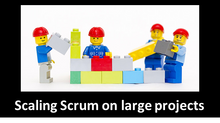Certification vs. Competency
- Venki Prathivadi
- Nov 12, 2017
- 4 min read
Introduction and Context
“Thank you for your interest in the role. It appears that you do not have the required Agile certification.”
“But, I have 20+ years of Projects and Software Development Experience and I have been a Scrum Master, Product Owner and Agile Coach on many occasions in many companies and Industries…”
“Well, there were many well qualified applicants for the role and unfortunately, we could not consider you this time. Good luck with your job search”
That was a real conversation between a job applicant for the role of a Scrum Master and a Recruitment agent.
We can substitute the word “Agile” in the phrase “required Agile certification” with anything else like “Project Management”, “Business Analysis”, “Testing”, “Lean”, “Six Sigma”, “SAP”, “Microsoft”, “Cisco”, etc. and the gist of the conversation between a potential job-seeker and recruitment agents or hiring staff would be similar.
Why do hiring companies or recruitment agencies seek “certifications” from prospective staff? Are “certificates” more important than demonstrated “competency”? Why might competent people not have certificates? Why does “certification” not equate to “competency”? This article aims to share some insights to these questions and offers recommendations for certifications in Agile Software Development, Project Management and related areas.
On certifications and competence
Certification is the action or process of providing someone with an official document attesting to a status or level of achievement. Certificates are usually issued by some professional body, agency or organization.
Competence is the ability to do something successfully or efficiently and relates to a cluster of knowledge, skills and attitude.
Perhaps this metaphor relating to driving might communicate a good perspective on certifications and competence: “Even great drivers like Schumacher or Hamilton need a license to drive on public streets in any city”. Just as being an expert Driver is not enough to drive without a license issued by the local Road / Transport authority, having a Driver’s licence does not make one a competent driver. Lots of “deliberate” practice in all conditions and circumstances, real-world problem solving that requires application of knowledge combined with certification proves competence.
It is incorrectly believed that having relevant certifications in a field will get somebody a job. It may or may not. Similarly, not having a certification despite being competent may prevent people from securing a job.
Certifications also reveal an important characteristic about people. It tells prospective employers that candidates with up to date and several certifications in related areas are believers in continuous learning and development. This is invaluable in establishing credibility as a committed practitioner in the field.
Agile certifications
There is a plethora of certifications available in Agile software development and Project Management. Unfortunately, the commercial objectives of this business have tended to overshadow the professional development side. Some guidelines for choosing the right certifications are offered below;
Choose globally well-recognized agile certifications such as those offered by the Scrum Alliance, Scrum.org, PMI, ICAgile and Scaled Agile (Please see links to these organizations in the reference section at the end of this article)
Choose agencies that offer the full spectrum of education and certification across these levels – Foundational (Basic), Intermediate or Practitioner and Advanced
Choose agencies that offer full spectrum of graded education and certification across roles – Developer, Scrum Master, Product Owner and Enterprise Agile Coach. These certifications are usually called “Certified Scrum Master or CSM, Certified Scrum Product Owner or CSPO, etc.)
Fewer agencies offer education and certification across a wide range of Agile approaches such as Scrum, Lean, XP, Kanban, etc. Have clarity on the frameworks that suits you best and choose an agency that can cater to different frameworks
Some agencies mandate classroom type training ranging from 1 to 5 days followed by a certification test. These are usually more expensive. Others allow applications to directly attempt an online test without going through any learning (online or classroom based). It is good to have the flexibility of both types because individual circumstances vary and there may be some certifications that you may be able to obtain through self-study. Choose agencies or bodies that offer that flexibility.
Table 1 Shows five of the more popular global certifications for Scrum Master.

Table 1: Comparative features of Scrum Master Certifications
Abbreviations
PSM (Professional Scrum Master)
CSM (Certified Scrum Master)
ASM (Accredited Scrum Master)
ACP (Agile Certified Professional)
PSPO (Professional Scrum Product Owner)
PSD (Professional Scrum Developer)
SPS (Scaled Professional Scrum)
CSP (Certified Scrum Professional)
CSPO (Certified Scrum Product Owner)
CAL (Certified Agile Leader)
CAA (Certified Agile Associate)
AAP (Accredited Agile Practitioner)
ASAP (Accredited Scaled Agile Practitioner)
AKP (Accredited Kanban Practitioner)
ALSP (Accredited Lean Software Practitioner)
PMP (Project Management Professional)
PgMP (Program Management Professional)
PfMP (Portfolio Management Professional)
CAPM (Certified Associate in Project Management)
PMI (Project Management Institute)
PBA (Professional Business Analysis)
RMP (Risk Management Professional)
SP (Scheduling Professional)
Conclusion
Certification compliments competency. While it is possible to be competent and not be certified any certification without competency is just a worthless piece of paper. Deep foundational learning that is attested by a reputed agency through formal or informal assessment is the basis of Knowledge. That knowledge when applied repeatedly in varying conditions and circumstances (practice) results in skills. Knowledge and Skill when wrapped in the right attitude results in competency.
“Anyone who stops learning is old, whether at twenty or eighty. Anyone who keeps learning stays young.” ― Henry Ford
“The more I live, the more I learn. The more I learn, the more I realize, the less I know.” ― Michel Legrand
“Those people who develop the ability to continuously acquire new and better forms of knowledge that they can apply to their work and to their lives will be the movers and shakers in our society for the indefinite future.” ― Brian Tracy



















